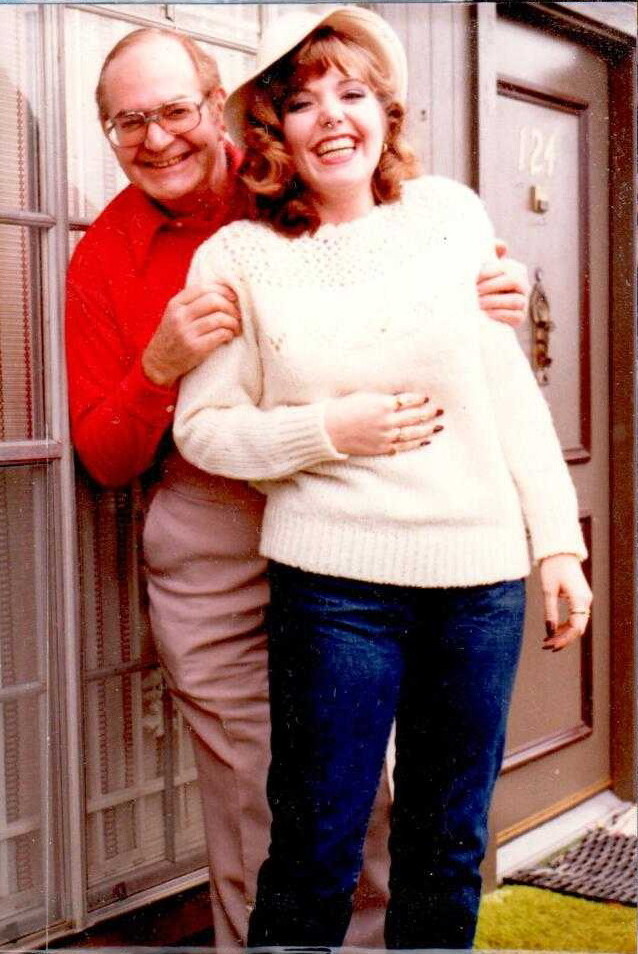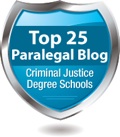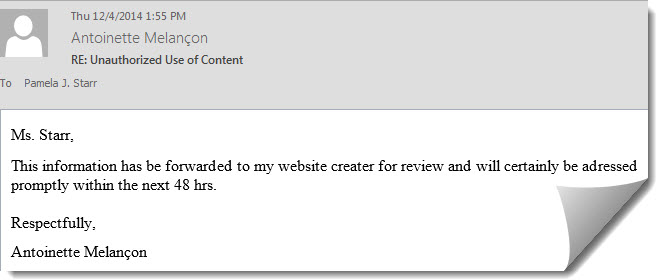#DontDiscussBusinessInPublicLikeThis
April 19, 2017Think, for a moment , about the last time you were at the grocery store, a mall, or in any public setting. Did you encounter people on their cellphones and having face-to-face conversations? What did you hear in passing?
, about the last time you were at the grocery store, a mall, or in any public setting. Did you encounter people on their cellphones and having face-to-face conversations? What did you hear in passing?
Me? I had just dropped off a prescription at the pharmacy in my local grocery store and decided to do a little shopping while it was being filled. Cart and shopping list in hand, I found myself trailing a meanderer who was more focused on her conversation than shopping. Normally, I would have zipped past her, but the aisle was crowded and she kept pausing – not to shop or compare prices. Oy, gott in himmel,[1] that would have been a blessing.
No, my friends, she stopped, every few steps, to emphasize some salient (salacious?) point. Did I mention she was on speakerphone? The subject of the conversation – words I shall never unhear – in graphically intimate detail … the tribulations with her current method of birth control, punctuated by her friend’s excruciatingly, descriptive observations and commentary.
Oh how I wished that a ‘cone of silence’[2] would drop soundly on her (or my) head.
When did we become so complacent and nonchalant about the most intimate details of our lives?
How did we lose the skill to self-censor our actions and suppress the things we say and share?
At what point did we allow technology to override our awareness of the where, when, and what of our speech and actions?
And what, you may ask, does my grocery store encounter have to do with our jobs, duties, and responsibilities as paralegals?
More than you might realize –
You’ve seen the news, reports, and posts about the impact of technology and social media on ethics and confidentiality. Perhaps you’ve read one or more ethics opinions on the subject. As paralegals, we must be mindful of the constantly changing landscape that is 21st century law and give proper consideration to the implications of those transformations within the walls of our offices – you know, the sanctum sanctorum where we adhere to the rules. We know what we should and shouldn’t do. Right?
Just in case, let’s review the rules …
We’ll start with NFPA’s Model Code of Ethics and Professional Responsibility and Guidelines for Enforcement. Ethical Considerations 1.5 sets the standard for confidentiality:
EC-1.5 (f) A paralegal shall not engage in any indiscreet communications concerning clients.
It is derived from Rule 1.6 of the ABA Model Rules of Professional Conduct – Confidentiality of Information. This rule defines a lawyer’s – and every paralegal’s – ethical duty to take reasonable measures to protect confidential client information from inadvertent or unauthorized disclosures. Paragraph (a) states, in part:
- A lawyer shall not reveal information relating to the representation of a client unless the client gives informed consent …[3]
In May 2012, the ABA Commission on Ethics 20/20 submitted a Resolution and Report on Technology and Confidentiality to the ABA House of Delegates with recommendations for significant changes to the Model Rules to conform with advances in technology. Subsequently, Rule 1.6 was amended to include the following paragraph, ostensibly in consideration of the effect of technology on the practice of law and to further clarify concerns about inadvertent or unauthorized disclosure:
(c) A lawyer shall make reasonable efforts to prevent the inadvertent or unauthorized disclosure of, or unauthorized access to, information relating to the representation of a client.
Are you taking notes?
Today, my esteemed colleagues, I’d like you to consider your role in the prevalence of inadvertent disclosure in the real world. Keep the thou shalt nots of the rules cited above in mind while you consider the ramifications and indirect consequences of your interactions once you leave the hallowed halls of your work places.
Let me share a true-life example courtesy of Jennifer Ellis, JD, a respected expert on social media and ethics.[4] On March 6, 2015, Jennifer live tweeted an entertaining, albeit unsettling, account of her observations while waiting for her car to be repaired:
- At a car dealer. Man is talking to his employee about a third employee. #badidea
- He is talking to a woman with the same first name as me, which caused me to notice.
- He gave Jennifer detailed information about how to log into their bank system. I heard the name of the bank and the passcode.
- #dontdiscussbusinessinpubliclikethis
- He is explaining his payroll issue. It seems there is an issue with the bank.
- He needs to pay his employees half in cash
- I could easily figure out who this guy is, where he works and the location of his safe with money in.
- He is confirming he has large amounts of cash in his safe.
- Now I know where they are meeting with a large amount of cash. He even provided detailed directions
- Now I know his full name.
- So to recap. I know name, bank, password (I forgot that immediately alas) that Dawn is in trouble. That he is buying a property.
- Where the property is. And that he will be carrying cash.
- I will not give in to the temptation to look up his name. Which I will forget very soon anyway. [5]
What happened to common sense? Did he really think no one would hear his conversation? One can only hope that, 1) other customers in that waiting room also chose to ignore temptation; and 2) no one in that room knew any of the named parties.
‘Fess up. You just had a ‘have I done that?’ moment.
Put your on paralegal suit and consider a typical day at work. You’ve settled in to perform your characteristic paralegal magic, and, SCENE:
- You’re in the elevator with co-workers talking about opposing counsel.
- You’re at lunch with colleagues when the conversation turns that PITT (“Pain in the Tuchas”) client.
- You’re driving home from work and you call your BFF (hands-free connection, of course) to whine about your day.
- You’re in line somewhere, phone in hand, checking office email or texting a colleague.
- You’re at the park on the phone discussing trial details with your supervising attorney.
- You’re on the train, a plane, or in some very public waiting area working on your tablet or laptop.
- You’re at a professional event comparing war stories.
- You’ve posted a hypothetical to an online forum on Facebook, LinkedIn, an ‘old school’ listserv, or discussion board.
If you’re first thought is, ‘she can’t be serious’. You’re wrong.
Remember EC 1.5 (f)? “A paralegal shall not engage in any indiscreet communications concerning clients.” [emphasis added]
What about Rule 1.6 (a) and (c)? For additional insight and guidance, we look to the comments to Rule 1.6, specifically as they apply to paragraphs (a) and (c).[6]
Comment 4 expands the application of Paragraph (a) – the rule that ‘prohibits a lawyer from revealing information relating to the representation of a client.’ According to Comment 4:
This prohibition also applies to disclosures by a lawyer that do not in themselves reveal protected information but could reasonably lead to the discovery of such information by a third person. A lawyer’s use of a hypothetical to discuss issues relating to the representation is permissible so long as there is no reasonable likelihood that the listener will be able to ascertain the identity of the client or the situation involved. [emphasis added]
Comment 18 elaborates on Paragraph (c)’s requirement that ‘a lawyer make reasonable efforts to prevent the inadvertent or unauthorized disclosure of, or unauthorized access to, information relating to the representation of a client.’ In significant part, Comment 18 explains that a lawyer is required:
… to act competently to safeguard information relating to the representation of a client against unauthorized access by third parties and against inadvertent or unauthorized disclosure by the lawyer or other persons who are participating in the representation of the client or who are subject to the lawyer’s supervision. See Rules 1.1, 5.1 and 5.3. … Whether a lawyer may be required to take additional steps to safeguard a client’s information in order to comply with other law, such as state and federal laws that govern data privacy or that impose notification requirements upon the loss of, or unauthorized access to, electronic information, is beyond the scope of these Rules … [emphasis added]
In short, we’re bound by the rules to be discreet to avoid inadvertent or unauthorized disclosure. Although the rules seem to place more emphasis on electronic mishaps and that which occurs within the office, I submit that rules extend to the spoken word and the manner in which we conduct ourselves outside the office … at all times.
- With the rules in mind – what considerations should have been made regarding the above scenarios?
- ‘The elevator’ – Were you the only occupants at the time? Did someone board the elevator while you were in mid-conversation? Is there a chance that OC or the other party has offices in your building and someone overheard your conversation? How much did you say and in what context? From an alternative perspective, you’re alone on the elevator when some attorneys from another firm, in the midst of a heated discussion about a settlement agreement, join you. As far as they’re concerned, you’re invisible.
- “At lunch” – Who can hear you? If you think the answer is, ‘It was noisy, no one could hear us.’ You’re wrong. You heard each other, didn’t you? How specific were your comments? Did you name names or other details about the case?
- “Driving home” – Granted, you’re alone in your car and your BFF doesn’t even work in a law related industry. How could there be an issue? Did you rant about a colleague or client, or discuss the details of a file you’re working on?
- “In line” – I bet you’re thinking, it’s a tiny screen. Who would take the time or energy to read over my shoulder? Does it really matter? A friend recently told me she’d been able to clearly see some random guy’s entire text conversation while she was sitting inside a coffee shop and he was sitting outside merrily texting along.
- “At the park” – Who was around you? Did it occur to you to mention where you were or suggest that you would call back when you were in a more secure location? How detailed was your conversation?
- “On the train …” – Was it a secure Wi-Fi connection? What about your screen? Could anyone look over your shoulder and read that pleading your drafting? Maybe it’s time to invest in a VPN and privacy screen protector.
- “At a professional event” – This one should be obvious. The attendees are about as diverse a group as you can get and you’re in public (semi-private doesn’t count). Unless you’re speaking in Enigma level code, it’s likely you’re unintentionally giving away the proverbial farm.
- “Posting to a forum” – How often have you read and responded to questions posted by other paralegals requesting information or clarification on a situation? Or perhaps you’ve posted your own query – how well disguised was your hypothetical? Did you take time to consider that someone from the other side might be a member of the group – lurking in the background? Did you disclose information by way of an innocent inquiry? Did you commit UPL??
These things happen every day and we often let them pass without a second thought.
How much identifiable or confidential information have you inadvertently disclosed?
This is no joking matter!
Think before you speak, type, text, send, post …
Reprinted by permission from The National Federation of Paralegal, Associations, Inc., www.paralegals.org.
[1] Loosely translated from German as “good heavens”
[2] Get Smart (TV Series 1965–1970)
[3] Rule 1.0(e) “Informed consent” denotes the agreement by a person to a proposed course of conduct after the lawyer has communicated adequate information and explanation about the material risks of and reasonably available alternatives to the proposed course of conduct.”
[4] http://www.jlellis.net/blog/ – @jle_jd
[5] I have redacted a significant number of posts from the original, 1-hour feed.
[6] Model Rules of Professional Conduct Comment on Rule 1.6, http://www.americanbar.org/groups/professional_responsibility/publications/model_rules_of_professional_conduct/rule_1_6_confidentiality_of_information/comment_on_rule_1_6.htm
2 CommentsThings That Make My Work Easier
June 2, 2016In May 2014, I posted a review of one of the best tools to ever cross my desk – WordRake. I meant to post an updated review in May 2015, but … the Texas floods happened.
You’re asking, what it this WordRake of which you speak?
It’s a software add-in for Microsoft Word and Outlook that acts as an ‘in-line editor designed for professional business writing.’
“WordRake is designed to edit documents and emails to remove useless phrases and words, making your documents and emails clear and concise.” Take the sentence below. The original was composed in perfect legalese, but the raked version is much easier to read and presents a stronger argument.
I write a lot – pleadings, memoranda, correspondence, and more for my clients; magazine articles; my blog; training materials; and homework*. After a week of ‘raking’, I discovered I use ‘that’ a lot more than necessary. WordRake clarified my thoughts without changing my voice.
It’s so easy to use – highlight and rake. Within a minute or so, WordRake scans the document and provides suggested edits. All that’s left is to review the suggestions and decide whether to accept or reject them. I am still surprised by how much unnecessary and cumbersome language it finds in my writing. Bottom line, WordRake continues to make me a better writer.
Click below to see WordRake in action:
Sign up for a free trial today (no credit card required). You’ll be hooked.
- I finally graduated!! On May 13, 2016, I earned the right to add MATD (Master of Arts in Training & Development) to my credentials.
It’s Way Past Time to Get Fit!
May 20, 2015Like many of my colleagues, I spend way too much time sitting on my ever widening tuchas. It doesn’t help that I’m slightly older than 36 either . . .
I should also mention that I’m, ever so slightly, set in my ways. I have my routine: I get up, get dressed, walk down a flight of stairs, get coffee, take care of the cats, and then walk down another flight of stairs to my office. I sit at my desk for hours – I get so hyper-focused that I forget to eat (not that you can tell from looking at me <le sigh>). The only time I really move is when my eyes start watering (see: hyper-focused) and I get up to walk upstairs to the ‘ladies’ room’ and right back down the stairs to my desk.
Once my work day ends*, I schlep upstairs for dinner and plotz on my couch. I isn’t glamorous and, frankly, it’s a bit embarrassing to admit that in print.
I know. How hard is it to just get out and walk for 30 or 45 minutes? Or, to use the mini-stair stepper that stares me down every night while I do my couch potato impression?
Harder than you’d think.
Well, enough!! It’s way past time to get fit! And, I’m going to do it.
My BBF (Best Business Buddy), Amie Hoff has created the FitKit – a self-contained, lightweight, anytime, anywhere fitness solution with all the tools needed for a total body workout.

Amie’s made it stupid easy to get and stay fit at home, at work, on the road…anywhere. [cue commercial] She’s got all the bases covered:
- Strength Training & Cardio
- Resistance Tube with Handles
- Flat Resistance Band
- Door Attachment
- Jump Rope
- 250+ exercises on exercise cards
- Access to a full online exercise library
- Nutrition, fitness and safety tips to maximize performance
The FitKit even includes an ID tag and reflective arm band for when I venture outside to exercise.
Seriously, it’s time to take back my life and health.
Wanna join me?
*for the self-employed, that never actually happens
Comments Off on It’s Way Past Time to Get Fit!The Copyright Wars – UPDATE
December 22, 2014A couple weeks back, I posted about content theft by, at least, two virtual service vendors – It’s Not Flattery, It’s Plagiarism! (Georgia Peach Virtual Paralegal Services) and It’s Still Stealing – Another Copyright Violation (Flawless Petitions, LLC). Ultimately, I discovered a third offender, Inquest Resources.
I emailed the owners of all three companies, respectfully requesting that they remove my content from all profiles and marketing materials.
Flawless responded:
(I had to share the email – y’all wouldn’t have believed me if I’d cut and pasted such flawless content.)
Subsequently, she removed the content. Well, she made an attempt to remove it. She has removed all but the first line of my mission statement from her website and LinkedIn profile, but failed to remove other content.
Inquest responded – click here for the entire exchange.
To date, I have not heard from Georgia Peach.
I took the only logical next steps – I filed reports with LinkedIn, Facebook, and eLance (Ms. Peach). I’m still waiting to hear back from eLance.
LinkedIn has removed the brochure, that contained my content, from Ms. Peach’s LI profile and has confirmed the removal of all but the first line of my mission statement from Flawless’ profile (although, she is still using the CBA designation without authorization). Facebook has removed/blocked Georgia Peach’s business page and has removed my content from Flawless’ page.
They really shouldn’t mess with a redhead from the GSOT … #justsayin.
Comments Off on The Copyright Wars – UPDATEIt’s the Shabbas before Channukah
December 12, 2014… it’s also my father’s yarzheit (anniversary of death). For many, the holiday season is bittersweet. My father (Z”L) will forever be linked to this time of year. I last saw him alive on Thanksgiving Day 1982 and he was gone on December 8, 1982/ Kislev 22 – 3 days before Channukah.
 You’d think the pain of missing him would have diminished over the years. In many ways it has. Yet the candles somehow don’t burn quite as brightly with his light gone from this life. Tonight, before I kindle my Shabbas candles, I will light a memorial candle to honor and recall the miracle of his life.
You’d think the pain of missing him would have diminished over the years. In many ways it has. Yet the candles somehow don’t burn quite as brightly with his light gone from this life. Tonight, before I kindle my Shabbas candles, I will light a memorial candle to honor and recall the miracle of his life.
They say Shabbas lights have a distinct and special purpose – to remind us of the  smaller, quieter miracles that take place in our homes every day, while Channukah is about celebrating a magnificent miracle. Whether it’s a moment of peace or the joy of family, take a moment to pause and reflect upon these ‘light’ miracles when you light your Shabbas candles week. And, on Tuesday evening, when we light our Channukiot, we can reflect on the greater miracles in our lives.
smaller, quieter miracles that take place in our homes every day, while Channukah is about celebrating a magnificent miracle. Whether it’s a moment of peace or the joy of family, take a moment to pause and reflect upon these ‘light’ miracles when you light your Shabbas candles week. And, on Tuesday evening, when we light our Channukiot, we can reflect on the greater miracles in our lives.
I will add a candle every night, for eight nights, until my Channukiah burns brightly, and celebrate the miracle of my life and the lives of those around me.
Shabbat Shalom and Chag Chanukah Sameach!
Comments Off on It’s the Shabbas before Channukah








